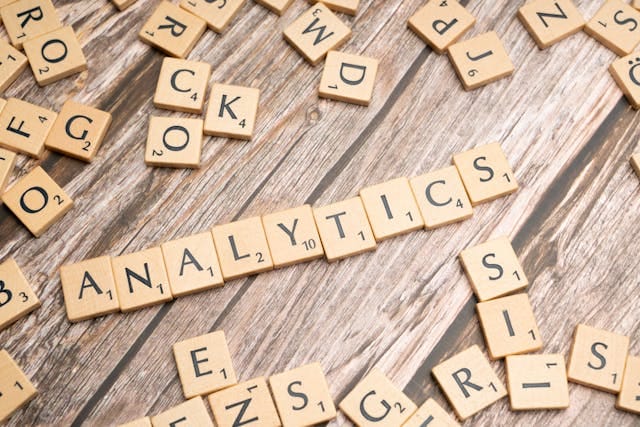Artificial intelligence (AI) has redefined how industries approach problem-solving, planning, and decision-making. Among its most impactful applications is AI for predictive analytics, which helps organizations foresee trends, manage risks, and optimize operations. By analyzing vast amounts of data, AI-driven predictive analytics offers precision and speed previously unattainable, becoming an invaluable tool across fields like marketing, healthcare, finance, and beyond. This blog explores how AI for predictive analytics is revolutionizing industries, the challenges it faces, and its boundless potential for the future.
What Is AI for Predictive Analytics?
AI for predictive analytics leverages machine learning (ML), deep learning, and natural language processing to forecast future outcomes. It analyzes past and present data, recognizing patterns and trends that inform accurate predictions. This combination of historical data and real-time analysis enables organizations to plan proactively rather than reactively.
While traditional predictive analytics relied heavily on statistical tools, AI’s integration enhances its scope. By processing unstructured data, including images, text, and videos, AI expands predictive analytics beyond numerical datasets. Industries such as retail, logistics, and education are unlocking new potentials, from predicting inventory shortages to customizing student learning pathways. The seamless integration of AI allows companies to harness actionable insights without overwhelming their resources.
How Machine Learning Enhances AI for Predictive Analytics
Machine learning is the backbone of AI for predictive analytics, enabling systems to adapt and refine their predictions over time. Unlike static algorithms, ML models continuously learn from new data, improving their accuracy and relevance.
For example, in e-commerce, ML models analyze customer purchasing behavior and recommend products tailored to individual preferences. Similarly, in urban planning, ML algorithms process traffic data to predict congestion patterns, aiding in infrastructure development. The iterative nature of machine learning ensures that predictions are not only accurate but also evolve with changing conditions, making it indispensable in dynamic industries like technology and finance.
AI for Predictive Analytics in Marketing
Marketing thrives on understanding consumer behavior, and AI for predictive analytics takes this capability to new heights. It allows marketers to anticipate customer needs, segment audiences effectively, and optimize campaigns for maximum impact.
One groundbreaking example is predictive personalization, where AI-driven tools tailor advertisements and content based on individual browsing habits. Predictive analytics also helps identify high-value customers, reducing churn rates by delivering personalized offers. For instance, streaming platforms use predictive models to recommend shows, keeping subscribers engaged. By leveraging these insights, businesses maximize ROI and enhance customer satisfaction.
Transforming Healthcare with AI for Predictive Analytics
The integration of AI for predictive analytics in healthcare is driving significant advancements in patient care and operational efficiency. By analyzing medical histories, genetic data, and environmental factors, predictive models identify individuals at risk for chronic illnesses.
For example, hospitals use AI-driven tools to forecast patient readmissions, enabling preventative care measures. Predictive analytics also plays a crucial role in pandemic response by mapping disease spread patterns and informing resource allocation. Moreover, drug discovery benefits immensely from AI by predicting compound efficacy and potential side effects, significantly reducing development timelines.
AI for Predictive Analytics in Financial Services
The financial sector has long relied on predictive analytics, but AI for predictive analytics has elevated its effectiveness. From fraud detection to investment strategies, AI-driven models bring unparalleled precision.
For instance, AI algorithms analyze transaction data to identify suspicious patterns indicative of fraud, safeguarding both consumers and businesses. Additionally, predictive models assess market trends, providing investors with actionable insights to navigate complex financial landscapes. Robo-advisors, powered by AI, democratize wealth management by offering tailored investment solutions based on individual financial goals and risk tolerance.
Addressing Challenges in AI for Predictive Analytics
Despite its potential, implementing AI for predictive analytics poses challenges. The quality of predictions depends on the quality of data, and organizations often struggle with integrating disparate datasets. Inconsistent or biased data can lead to inaccurate models.
Ethical concerns also arise, particularly regarding data privacy and algorithmic bias. Misuse of predictive analytics in areas like hiring or lending could perpetuate inequalities. Overcoming these challenges requires transparency in model development, robust data governance policies, and continual evaluation of AI systems to ensure ethical practices.
AI for Predictive Analytics in Supply Chain Optimization
Efficient supply chain management is critical for businesses, and AI for predictive analytics plays a pivotal role in achieving this. By analyzing variables like consumer demand, production capacity, and shipping logistics, predictive models streamline operations.
For example, retailers use AI to forecast demand spikes during seasonal sales, ensuring adequate stock levels without over-ordering. Similarly, logistics companies predict potential delivery delays caused by weather conditions, enabling contingency planning. This level of foresight reduces costs, minimizes waste, and enhances customer satisfaction, making predictive analytics indispensable in supply chain management.
Future Trends in AI for Predictive Analytics
The future of AI for predictive analytics is filled with exciting possibilities. Advances in quantum computing promise to enhance the speed and accuracy of predictions, while edge computing will bring predictive capabilities closer to real-time applications.
One emerging trend is the integration of predictive analytics with prescriptive analytics, where AI not only forecasts outcomes but also recommends actions. For example, in energy management, predictive models estimate consumption patterns, while prescriptive tools suggest optimal resource allocation. As AI continues to evolve, predictive analytics will become even more intuitive and accessible.
Practical Applications of AI for Predictive Analytics Across Industries
The versatility of AI for predictive analytics means it can be applied in virtually any industry. In agriculture, predictive models forecast crop yields based on weather and soil conditions, aiding farmers in decision-making.
In education, AI predicts student performance, enabling educators to tailor teaching methods for better outcomes. In manufacturing, predictive analytics anticipates equipment failures, reducing downtime and maintenance costs. These applications demonstrate how AI-driven predictions empower industries to operate more efficiently and sustainably.
Why Every Business Needs AI for Predictive Analytics
Businesses of all sizes can benefit from adopting AI for predictive analytics. For small businesses, it provides a competitive edge by uncovering opportunities and mitigating risks. Large enterprises, meanwhile, use predictive models to optimize processes and enhance customer experiences.
For instance, subscription-based services predict customer churn, allowing them to implement retention strategies proactively. Retailers forecast sales trends to plan inventory effectively. By harnessing the power of predictive analytics, businesses not only adapt to market changes but also drive innovation and growth.
Conclusion: Unlocking the Full Potential of AI for Predictive Analytics
The transformative impact of AI for predictive analytics is undeniable. By enabling precise forecasting and data-driven decision-making, it empowers industries to operate smarter and more efficiently. From personalizing customer experiences to advancing medical research, predictive analytics has a profound influence on our lives.
As technology evolves, the possibilities for predictive analytics will only expand. Organizations that invest in AI for predictive analytics today position themselves as leaders in tomorrow’s data-driven world. The journey to innovation and success begins with harnessing the power of predictive insights.






